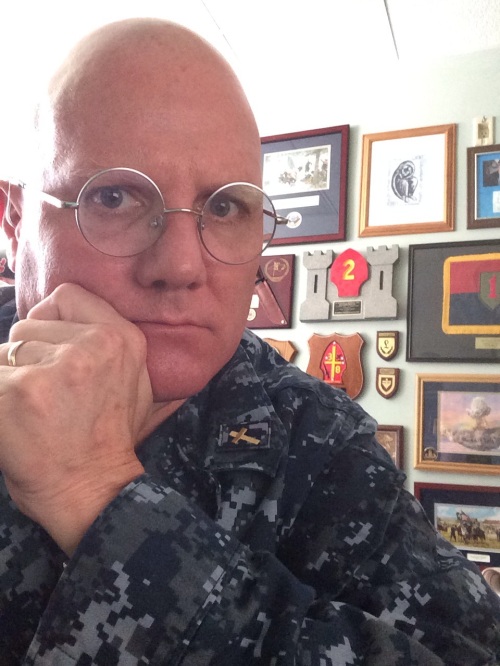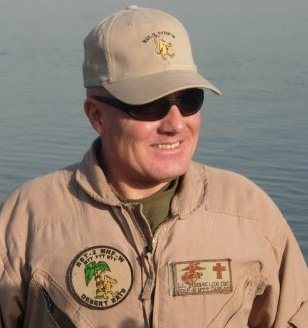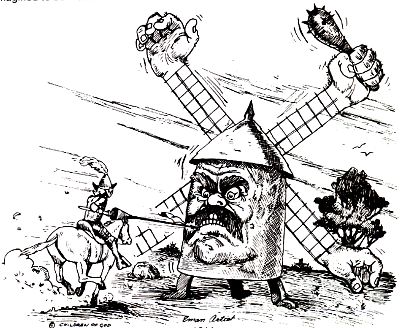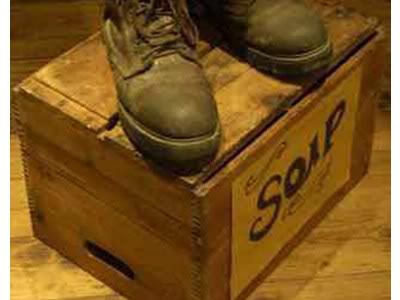Friends of Padre Steve’s World
Another week, another therapist… At least that is what it seems like to me. Those who have been following my writings for any length of time know of my struggles with PTSD and its associated maladies, as well as my struggles dealing with the military mental health system. This week is no different.
Last week I got a new “bungee-therapist” who I would have had less than three months before his rotation at the clinic is done. He is a nice young man, only 32 years old, I have been in the military longer than he he has been alive. He still in his residency; well trained, but not very experienced and it shows. Truthfully, though I don’t have as much specific education in psychology as the provider, I do have more clinical experience working with trauma and PTSD than the young man.
So on the second appointment I fired him. I think the biggest issue was what I saw as a lack of continuity in care and the mismatch in age and experience.
I was really anxious about the visit. This was based on an experience with another young provider last year. That experience caused me to crash and have some troubling thoughts about offing myself. Since I love life and am not a fan of taking the eternal celestial dirt nap; which some readers assure me will have me taking the eternal vacation on the Lake of Fire, but I digress….
Like I said I was anxious due to the previous experience. But, the two of us handled it very well and it was an amicable parting, a clean breakup if you will. I even used the George Costanza tested “it’s not you it’s me” breakup line. But hey, Ces’t l’apres-guerre… (such is life after war)
My plan now is to get with a senior shrink that I know and have worked with to help get me someone more compatible for what I need at this point in life. I just hope that by “breaking-up” with my therapist that I won’t get shafted by the institution.
But I have learned to live with this; I realize that the military mental health system is not in the business of trying to get you better, it is in the business of trying to return young men and women to be able to go back to war. If you actually get better in the process that is kind of a twofer. Honestly I could have gone back to war with a year of coming home. Going to war is easy, coming home intact is not.
Do not get me wrong, it is not that there are not providers willing to help; there are plenty of them. But the system , crowded with people who need more help than it can provide and without with ever shrinking budgets; almost makes it impossible to get help. If you can be patched up and sent back out, they have done their job, if you crash after you leave the service not their problem. Sadly, I have lost too many friends, some to suicide after they left the military, including men whose credentials as real American heroes were unmatched. This is not a new issue, ask any vet who has dealt with getting post-service care at the VA or anywhere.
Likewise, if you remain in service and have a chronic-long-term condition, of any kind, physical or mental the attitude seems to be “fuck you.” If you get the label as a “broke” Marine, Sailor, Soldier, or Airman your career is pretty much over, unless you are one of the lucky few like me who had some superiors who looked beyond that and protected you. I know that because it is not just my experience but the experience of hundreds of combat vets that I have dealt with.
I can live with this as long as I am on my meds, and have friends and beer, but then I am an old guy looking at retirement at the end of this tour. If I were a young guy, with my whole career ahead of me I would be fucked. So when I retire I will be a pain in the ass to the system to ensure that the young guys who will be fighting our wars in the future as well as those who are out of the military gets the care that they need.
But as far as my condition goes, I am oddly comforted by the words of Raymond “Red Reddington (James Spader) in The Blacklist:
“There is nothing that can take the pain away. But eventually, you will find a way to live with it. There will be nightmares. And everyday when you wake up, it will be the first thing you think about. Until one day, it’s the second.”
Many things haunt me; but unlike many people who have little self-awareness I might have just a bit too much. I have talked about the nightmares, night terrors and insomnia that I have many times following my return from Iraq. I used to believe, at least back in the first year or so after I returned that I thought that eventually I would get over it. I don’t believe that anymore, now I just believe that I will find a way to live with them.
I guess that is the secret to life. Instead of wishing that something would miraculously take way the pain, I guess that it is better to find a way to live with it because one day something else will replace it.
Is that an ideal way to deal with life? Probably not, but I know that I am an idealist anymore. I used to be, but that was a while back. It took time, but war and the lies of men that I voted for, men who I trusted because they professed my faith, my love of country, and some who even shared my vocation as a priest and chaplain took that from me.
Some experts call this “moral injury.” For me it is connected with my tour in Iraq, PTSD and what I experience when I came home from colleagues, and people in my former church. Betrayal and abandonment is a terrible thing, but I am learning to live with it. It is not pretty but I am learning with every passing night and morning. Alexander Dumas wrote in The Count of Monte Cristo:
“Moral wounds have this peculiarity – they may be hidden, but they never close; always painful, always ready to bleed when touched, they remain fresh and open in the heart.”
My life is full again, there is meaning and purpose, but it is tempered by realism and the expectation that every day I will wake up and still think about those painful memories until finally something else takes their place.
I guess that the secret to living with darkness and pain is simply to live with it because the saying that “time heals all wounds” is a lie, it is the fabrication of people that don’t want to deal with the real world. God might heal, but then God may not. I have learned to be okay with that. I know that there are some Christians who might disagree and even say that I do not have enough “faith,” whatever that means, but I can live with this.
So I will live with it and in doing so I will continue on and in the process hopefully be there for others that also struggle with pain that does not want to go away and nightmares that never seem to end. As the late Henri Nouwen wrote: “Ministry means the ongoing attempt to put one’s own search for God, with all the moments of pain and joy, despair and hope, at the disposal of those who want to join this search but do not know how.” Not exactly perfection, but it will work.
This now is my goal and my prayer: God grant me the courage to change the things I cannot accept; Serenity to accept the things I have changed; And the wisdom to know I’m different. Amen.
Peace
Padre Steve+













